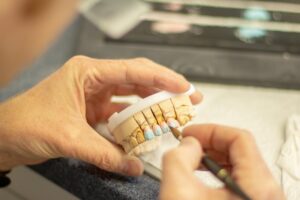Studying pharmacy in Europe can be an enriching experience, offering access to world-class education, diverse cultures, and exciting career opportunities. Whether you’re a prospective student planning to pursue a bachelor’s or master’s degree in pharmacy, navigating the application process and understanding the requirements can seem daunting. This comprehensive guide aims to provide aspiring pharmacy students with essential information on how to study pharmacy in Europe.
-
Research Your Options
Start by researching universities and pharmacy programs in Europe. Consider factors such as academic reputation, program structure, faculty expertise, research opportunities, and language of instruction. Look for universities that offer accredited pharmacy programs recognized by relevant professional bodies.
-
Understand Admission Requirements
Each university may have specific admission requirements for pharmacy programs. These typically include academic qualifications (such as high school transcripts or bachelor’s degree transcripts), language proficiency tests (such as IELTS or TOEFL for non-native English speakers), letters of recommendation, and a statement of purpose outlining your motivation for studying pharmacy.
-
Language Proficiency
Many European countries offer pharmacy programs taught in English, making them accessible to international students. However, some universities may require proof of English proficiency through standardized tests. If you’re planning to study in a non-English speaking country, you may need to demonstrate proficiency in the local language as well.
-
Apply for Admission
Once you’ve identified the universities and programs you’re interested in, follow the application procedures outlined by each institution. Pay close attention to application deadlines and submission requirements. Prepare all necessary documents, including transcripts, test scores, and letters of recommendation, well in advance.
-
Financial Planning
Consider the cost of tuition, living expenses, and other associated costs when planning to study pharmacy in Europe. Explore scholarship opportunities, financial aid programs, and student loans available for international students. Additionally, research part-time job opportunities or work-study programs to supplement your income while studying.
-
Obtain Student Visa
Depending on your nationality and the country you plan to study in, you may need to obtain a student visa or residence permit. Check the visa requirements of the country’s immigration authorities and initiate the application process as early as possible. Provide all necessary documentation and fulfill any additional requirements, such as proof of financial means and health insurance coverage.
-
Prepare for Cultural Adjustment
Moving to a new country for study can be both exciting and challenging. Prepare yourself for cultural adjustment by learning about the local customs, traditions, and social norms. Familiarize yourself with the educational system, healthcare facilities, and support services available to international students. Reach out to current students or alumni for insights and advice on living and studying in the host country.
-
Engage in Student Life
Once you arrive on campus, immerse yourself in student life and take advantage of extracurricular activities, clubs, and organizations. Build relationships with fellow students, faculty members, and professionals in the field of pharmacy. Participate in academic conferences, workshops, and research projects to enhance your learning experience and broaden your professional network.
-
Stay Updated on Regulatory Requirements
Familiarize yourself with the regulatory requirements for pharmacy practice in the country where you intend to work after graduation. Stay updated on licensure examinations, professional certifications, and continuing education requirements to ensure compliance with local regulations and standards.
-
Prepare for Career Opportunities
Throughout your pharmacy education, focus on developing clinical skills, research abilities, and professional competencies that will prepare you for a successful career in pharmacy. Explore internship opportunities, industry collaborations, and clinical placements to gain practical experience and insight into various pharmacy settings.
-
Explore Exchange Programs and Study Abroad Opportunities
Many universities in Europe participate in exchange programs and offer study abroad opportunities for pharmacy students. Investigate whether your home institution has partnerships with European universities that allow you to study abroad for a semester or a year. Exchange programs can provide valuable international experience, cultural immersion, and academic credits toward your pharmacy degree.
-
Seek Research Opportunities
Research experience is highly valued in the field of pharmacy and can enhance your academic profile and career prospects. Look for universities with strong research programs in pharmaceutical sciences, pharmacology, medicinal chemistry, or other related disciplines. Reach out to faculty members or research centers within your chosen university to inquire about undergraduate research opportunities or summer research internships.
-
Network with Industry Professionals
Networking is key to building connections and exploring career opportunities in the pharmaceutical industry. Attend industry events, conferences, and career fairs to meet professionals, recruiters, and representatives from pharmaceutical companies, regulatory agencies, and healthcare organizations. Join professional associations and online forums to stay connected with industry trends and job openings.
-
Stay Informed about Regulatory Changes and Healthcare Policies
Pharmacy practice is subject to evolving regulatory frameworks and healthcare policies. Stay informed about changes in drug regulations, pharmacy laws, and healthcare legislation in both your host country and your home country. Follow reputable sources such as regulatory agencies, professional associations, and healthcare publications to stay updated on industry developments and policy changes.
Studying pharmacy in Europe offers a unique opportunity to gain a global perspective on pharmaceutical sciences and healthcare delivery. By carefully planning your educational journey, staying informed about admission requirements and regulatory standards, and actively engaging in academic and professional development activities, you can lay a solid foundation for a rewarding career in pharmacy.





